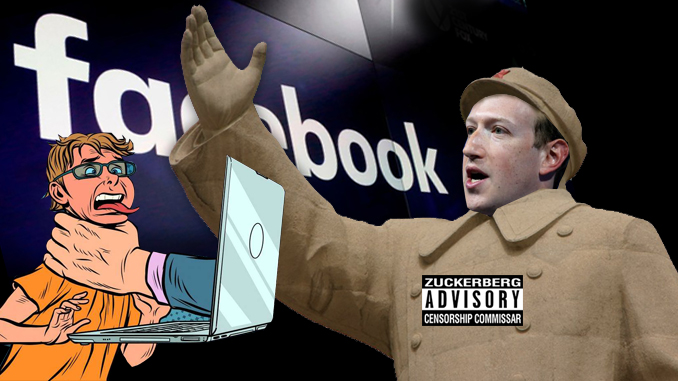
Mark Zuckerberg declares his social media site a “fully censoring publisher.”
By S.T. Patrick
Facebook, like a digital Random House, is a publisher. Or, that’s how CEO Mark Zuckerberg now defines his social media conglomerate of 16 years. In declaring itself a publisher and not a platform, it has simultaneously broadened its right to censor while exposing itself to myriad legal entanglements.
A platform is a medium, a company, a technology, or a means by which information can be distributed. Your phone and your text messenger app are platforms. If you curse or say something offensive on a call or in text, AT&T or Verizon or Sprint or Apple won’t censor you. They are merely providing the means by which you can communicate, but you will be responsible for the consequences of your own free speech decisions. A publisher, on the other hand, chooses the content it will allow to be published under its moniker. Producers of magazines, newspapers, and television news are publishers. Thus, they are legally responsible for the validity and effects of the content which they produce.
This new specification of purpose for Facebook was brought in response to a lawsuit joined by conservative activist Laura Loomer after she and others were banned from the social media giant. In a motion to dismiss Loomer and the others’ suits, Facebook claimed, “Under well-established law, neither Facebook nor any other publisher can be liable for failing to publish someone else’s message.” Loomer was banned under the “dangerous individuals” policy set up by Facebook to bar those they feel may cause violent, public disturbances.
The problem for Facebook now is that they can be held responsible for a litany of libel charges. Much of the Facebook chatter is personal, some heated. Unless Facebook knows the story behind someone’s strife with someone else, how can they discern truth from fiction, libel from fact? As a publisher and not a platform, they would be responsible for the validity of all content. Zuckerberg curiously agreed.
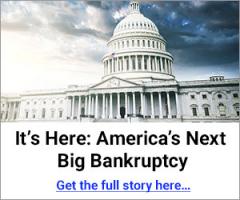 When asked if, indeed, Facebook is responsible for the content published on its app, Zuckerberg agreed that it is. “We didn’t take a broad enough view of our responsibility, and that was a big mistake,” Zuckerberg said. “It was my mistake, and I’m sorry. I started Facebook, I run it, and I’m responsible for what happens here.”
When asked if, indeed, Facebook is responsible for the content published on its app, Zuckerberg agreed that it is. “We didn’t take a broad enough view of our responsibility, and that was a big mistake,” Zuckerberg said. “It was my mistake, and I’m sorry. I started Facebook, I run it, and I’m responsible for what happens here.”
At this point, the team of attorneys accompanying Zuckerberg must have been stricken with shock. The American Bar Association already stated publicly that Facebook is the number one locale for evidence in divorce cases. Imagine the number of personal libels, declarations of impending suicides, threats of violence, instances of teen bullying, and copyright infringements are posted on Facebook in an hour. In asking users to “report” offensive content, the onus has always been on the masses. Zuckerberg, in one swoop, admitted that it is now on Facebook, whether the offense is reported or not.
Facebook very much wants to hide behind Section 230 of the Communications Decency Act of 1996. Written to combat an exploding porn industry at the dawn of the internet, Section 230 allows owners of websites, forums, and message boards to set guidelines and standards that can be controlled and enforced through an editing process. In doing so, they can further retain their status as a platform and not a publisher, while making discretionary choices about content.
Michael Brendan Dougherty of the “National Review” website wrote that Section 230 “is now the legal remit under which social-media giants shadow- ban, block, and censor conservative speech.” Loomer absolutely agrees.
Facebook wants wider censorship powers. If they are to remain a platform, they would have to micromanage statements, similar to when a radio station chooses to bleep a curse word from a song or a statement. Zuckerberg’s goal is to ban a collection of artists rather than words in a song. In doing so, arguing that you are a platform as you wade in a swamp of censorship hypocrisy is untenable. A book publisher, for example, can choose who it prints and who it rejects. It isn’t obligated to print every manuscript it receives.
For Facebook, they desire having the pie and eating it, too. They’ve maintained all of their free speech rights without caring an iota about a responsibility that they have placed on the shoulders of the individual user. They want their very profitable billions of users (marks for advertising revenue) to continue using the service, and using it as they do now, as a vital part of their daily communications and socialization. Yet they want the censorship baton to fall upon their own chosen targets without judgment or litigation. After all, how can they remain the largest tool in the Deep State’s kit if they cannot fully control the information that passes through their doors?
S.T. Patrick holds degrees in both journalism and social studies education. He spent 10 years as an educator and now hosts the “Midnight Writer News Show.” His email is [email protected]. He is also an occasional contributor to TBR history magazine and the current managing editor of Deep Truth Journal (DTJ), a new conspiracy-focused publication available from the AFP Online Store.


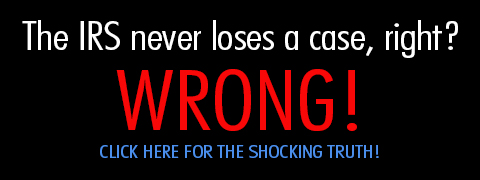
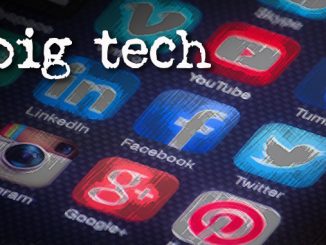
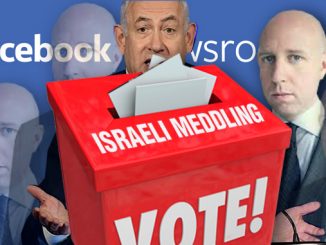
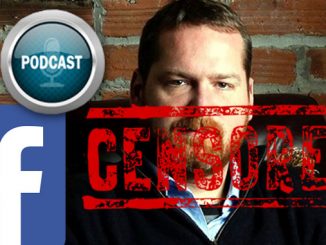
When the smoke clears, does it not seem obvious Zuckerberg is an anti-White Jew supremacist who behaves accordingly?